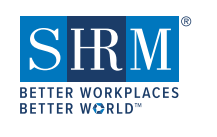
The Americans with Disabilities Act of 1990 or ADA is a civil rights law that prohibits discrimination based on disability. It affords similar protections against discrimination to Americans with disabilities as the Civil Rights Act of 1964, which made discrimination based on race, religion, sex, national origin, and other characteristics illegal, and later sexual orientation and gender identity. In addition, unlike the Civil Rights Act, the ADA also requires covered employers to provide reasonable accommodations to employees with disabilities, and imposes accessibility requirements on public accommodations.

Accessibility is the design of products, devices, services, vehicles, or environments so as to be usable by people with disabilities. The concept of accessible design and practice of accessible development ensures both "direct access" and "indirect access" meaning compatibility with a person's assistive technology.

Mental health law includes a wide variety of legal topics and pertain to people with a diagnosis or possible diagnosis of a mental health condition, and to those involved in managing or treating such people. Laws that relate to mental health include:
People with disabilities in the United States are a significant minority group, making up a fifth of the overall population and over half of Americans older than eighty. There is a complex history underlying the U.S. and its relationship with its disabled population, with great progress being made in the last century to improve the livelihood of disabled citizens through legislation providing protections and benefits. Most notably, the Americans with Disabilities Act is a comprehensive anti-discrimination policy that works to protect Americans with disabilities in public settings and the workplace.
Pregnancy discrimination is a type of employment discrimination that occurs when expectant women are fired, not hired, or otherwise discriminated against due to their pregnancy or intention to become pregnant. Common forms of pregnancy discrimination include not being hired due to visible pregnancy or likelihood of becoming pregnant, being fired after informing an employer of one's pregnancy, being fired after maternity leave, and receiving a pay dock due to pregnancy. Pregnancy discrimination may also take the form of denying reasonable accommodations to workers based on pregnancy, childbirth, and related medical conditions. Pregnancy discrimination has also been examined to have an indirect relationship with the decline of a mother's physical and mental health. Convention on the Elimination of All Forms of Discrimination against Women prohibits dismissal on the grounds of maternity or pregnancy and ensures right to maternity leave or comparable social benefits. The Maternity Protection Convention C 183 proclaims adequate protection for pregnancy as well. Though women have some protection in the United States because of the Pregnancy Discrimination Act of 1978, it has not completely curbed the incidence of pregnancy discrimination. The Equal Rights Amendment could ensure more robust sex equality ensuring that women and men could both work and have children at the same time.

The Rehabilitation Act of 1973 is a United States federal law, codified at 29 U.S.C. § 701 et seq. The principal sponsor of the bill was Rep. John Brademas (D-IN-3). The Rehabilitation Act of 1973 replaces preexisting laws to extend and revise the authorization of grants to States for vocational rehabilitation services, with special emphasis on services to those with the most severe disabilities, to expand special Federal responsibilities and research and training programs with respect to individuals with disabilities, to establish special responsibilities in the Secretary of Health, Education, and Welfare for coordination of all programs with respect to individuals with disabilities within the Department of Health, Education, and Welfare, and for other purposes. It created the Rehabilitation Services Administration.

The Society for Human Resource Management (SHRM) is a professional human resources membership association headquartered in Alexandria, Virginia. SHRM promotes the role of HR as a profession and provides education, certification, and networking to its members, while lobbying Congress on issues pertinent to labor management.
Employment discrimination law in the United States derives from the common law, and is codified in numerous state, federal, and local laws. These laws prohibit discrimination based on certain characteristics or "protected categories". The United States Constitution also prohibits discrimination by federal and state governments against their public employees. Discrimination in the private sector is not directly constrained by the Constitution, but has become subject to a growing body of federal and state law, including the Title VII of the Civil Rights Act of 1964. Federal law prohibits discrimination in a number of areas, including recruiting, hiring, job evaluations, promotion policies, training, compensation and disciplinary action. State laws often extend protection to additional categories or employers.
A reasonable accommodation is an adjustment made in a system to accommodate or make fair the same system for an individual based on a proven need. That need can vary. Accommodations can be religious, physical, mental or emotional, academic, or employment-related, and law often mandates them. Each country has its own system of reasonable accommodations. The United Nations use this term in the Convention on the Rights of Persons with Disabilities, saying refusal to make accommodation results in discrimination. It defines a "reasonable accommodation" as:
... necessary and appropriate modification and adjustments not imposing a disproportionate or undue burden, where needed in a particular case, to ensure to persons with disabilities the enjoyment or exercise on an equal basis with others of all human rights and fundamental freedoms;

Inclusion, in relation to persons with disabilities, is defined as including individuals with disabilities in everyday activities and ensuring they have access to resources and opportunities in ways that are similar to their non-disabled peers. Disability rights advocates define true inclusion as results-oriented, rather than focused merely on encouragement. To this end, communities, businesses, and other groups and organizations are considered inclusive if people with disabilities do not face barriers to participation and have equal access to opportunities and resources.
An emotional support animal (ESA) is an animal that provides relief to individuals with "psychiatric disability through companionship." Emotional support animals are not required to be trained. Any animal that provides support, comfort, or aid, to an individual through companionship, unconditional positive regard, and affection may be regarded as an emotional support animal.
Supported employment refers to service provisions wherein people with disabilities, including intellectual disabilities, mental health, and traumatic brain injury, among others, are assisted with obtaining and maintaining employment. Supported employment is considered to be one form of employment in which wages are expected, together with benefits from an employer in a competitive workplace, though some versions refer to disability agency paid employment. Companies such as Skilcraft in the United States are an example of "supported employment" which is defined in law for state and federal reimbursements.
The interactive accommodation process, or simply interactive process, refers to the collaborative effort involving an employer and employee to determine if the employee can return to work subsequent to an occupational or non-occupational injury, disease or disorder.

The ADA Amendments Act of 2008 is an Act of Congress, effective January 1, 2009, that amended the Americans with Disabilities Act of 1990 (ADA) and other disability nondiscrimination laws at the Federal level of the United States.
Knowbility is an American non-governmental organization based in Austin, Texas, working to support the independence and empowerment of people with disabilities by promoting the use and improving the availability of accessible information technology. Its mission is to create an inclusive digital world for people of all abilities. Knowbility's signature program is the Accessibility Internet Rally, a web-building competition that brings together volunteer web designers to create accessible websites for nonprofit organizations and artists that serve communities all over the world.

The Texas Workforce Commission (TWC) is a governmental agency in the U.S. state of Texas that provides unemployment benefits and services related to employment to eligible individuals and businesses.
In United States law, public accommodations are generally defined as facilities, whether publicly or privately owned, that are used by the public at large. Examples include retail stores, rental establishments, and service establishments as well as educational institutions, recreational facilities, and service centers.
Ableism is discrimination and social prejudice against people with physical or mental disabilities. Ableism characterizes people as they are defined by their disabilities and it also classifies disabled people as people who are inferior to non-disabled people. On this basis, people are assigned or denied certain perceived abilities, skills, or character orientations.
Occupational health concerns over the use of cannabis among workers are becoming increasingly important as cannabis becomes legal in more areas of the US. Of note, employers have concerns of workers either coming to work acutely impaired or recent use of cannabis still being detected in the body. Employment issues such as ADA law as it relates to accommodations for cannabis, paying unemployment benefits or paying out workers compensation benefits and disability claims are all important issues. While federal law still prohibits use, employers in different states have taken different stances based on whether they are federal contractors, perform safety sensitive work or whether the cannabis use is acutely impairing the employee.

Individuals with disabilities are more susceptible to contracting COVID-19 and have higher mortality rates compared to those without disabilities. This is particularly true for people with intellectual and developmental disabilities, those residing in care facilities, and women with disabilities. Individuals with disabilities face heightened risks of mental health issues related to the pandemic, such as increased feelings of loneliness and isolation. They were also more likely to face domestic violence and abuse during the pandemic. People with disabilities are more likely to experience unemployment as a result of the pandemic and may require changes to the types of accommodations they require for work. Children with disabilities experience complications in their educational programming. Remote learning poses a host of challenges for children with disabilities, including disruptions to physical and occupational therapies and access to assistive technologies.







